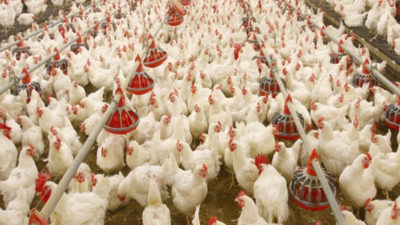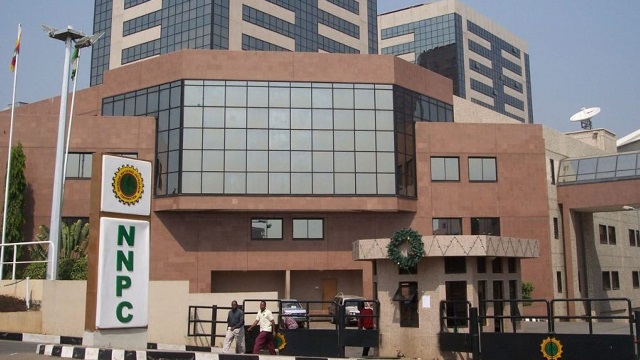The Poultry Association of Nigeria (PAN), South-West Zone has appealed to the Federal Government, CBN and other developmental agencies to save the industry from total collapse.
They made the appeal on Thursday during a joint news conference held at the Nigeria Union of Journalists (NUJ) Press Centre, Iyaganku GRA in Ibadan.
The poultry farmers complained of how the industry had lost several billions of naira due to the naira redesign and other government programmes.
Rev. Oluleye Gideon, the South-West PAN Chairman, said the CBN policy has brought about untold hardship to farmers and their investments.
Gideon alleged that the negative impact COVID-19 had on farmers and their farms was yet to abate, when the CBN brought another hardship on the farmers through the policy of naira redesign.
“We, the farmers are not against this policy, but its timing and implementation strategy has brought untold hardship on farmers.
“We want to let the government know that losses incurred by farmers are heavy and crushing.
“A lot of farms have collapsed, others are running at half capacity while many others will soon close down, if the government does not come to the aid of poultry farmers,” he said.
Gideon said that they have to save the poultry subsector of the economy which has been contributing about six percent of the GDP from total collapse.
The PAN chairman urged government at all levels, CBN and all other agencies of government concerned, to rise up and intervene in poultry sector of the economy.
“They should help in mopping up about 15 to 20 million crates of eggs and chicken unsold in the economy right now to ameliorate the losses of the farmers.
“These products should be used in feeding the people in IDP’s and all our correctional centres all over the country.
“Some could also be used in government hospital where meals are served as eggs helps in quick recovery and in building up immunity of sick patients,” he said.
He called on the federal government as a matter of urgency to resuscitate the school feeding programme, saying that eggs and chicken meat forms the major component of the programme.
Gideon pleaded with the federal and state government as well as CBN to intervene in subsidising major imputes, particularly maize and soya much more than they have been doing before.
“We also want to use this medium to appeal to the international grants and donor agencies like IFAD, NG-Cares, World Bank, Private Financial Advisory Network (PFAN) to come to the aid of poultry farmers in Nigeria and particularly the South-West region,” he said.
Gideon stressed that most of the farmers who are running on loan could not meet their loan obligation as a result of the crisis.
“We want the CBN and the federal government to help in defraying part of the loan and in some cases out right cancellation of the loan.
“This will enable farmers to recover and save the sector from collapsing. Let the federal government constitute a committee that will begin the process of mopping up all unsold eggs and chicken.
“A situation where a single farmer has about a hundred thousand crates of eggs unsold in the farm now, the value of which is over two hundred million,” Gedion said.
Mr Idowu Asenuga, the Ogun State PAN chairman, also urged the federal government to quickly intervene in their predicament to save the industry.
“I wish to once again call on government, which we have actually been doing at the PAN national level.
“We have gone to the Minister of Agriculture to appeal to the presidency and see how they can quickly intervene.
“We are aware that the presidency and the incoming government is an APC government. We have gone to the vice president-elect to tell him our predicament,” he said.
Mr Bisi Babalola, the South-West PAN Financial Secretary, said that the association need bailout from government to save the poultry sector from total collapse
Mr Alaba Towoju, the Osun State PAN Chairman, Mr Omidokun Oyekunle, the Oyo State PAN Chairman and Mr Oluwaseyi Alonge, all stressed that the naira redesign affected the industry negatively.
They all alleged that the crisis in the sector brought high blood pressure to some of the farmers and investors, adding that the result has led to unemployment as well as malnutrition.












